The Nordic and Baltic countries responded fast in providing support, allowing UNHCR to provide both immediate and longer-term response to people fleeing the war in Ukraine.
© UNHCR/Anna Liminowicz
Since the beginning of the war in Ukraine, over 7.1 million refugees from Ukraine have crossed the borders into neighbouring countries, some moving onwards to seek refuge in countries across Europe. Meanwhile, more than 6.9 million people in Ukraine are internally displaced, facing many challenges, including the absence of shelter, food, accommodation, basic infrastructure and access to employment and education.
The quick response from the Nordic and Baltic countries with support and financial contributions allowed UNHCR, the UN Refugee Agency, to respond to the humanitarian emergency quickly and continuously in Ukraine and neighbouring countries.
However, with winter fast approaching, many will need urgent and sustained support to cope with falling temperatures, including safe places to stay, repairs to damaged homes, warm clothes, and psychosocial support.
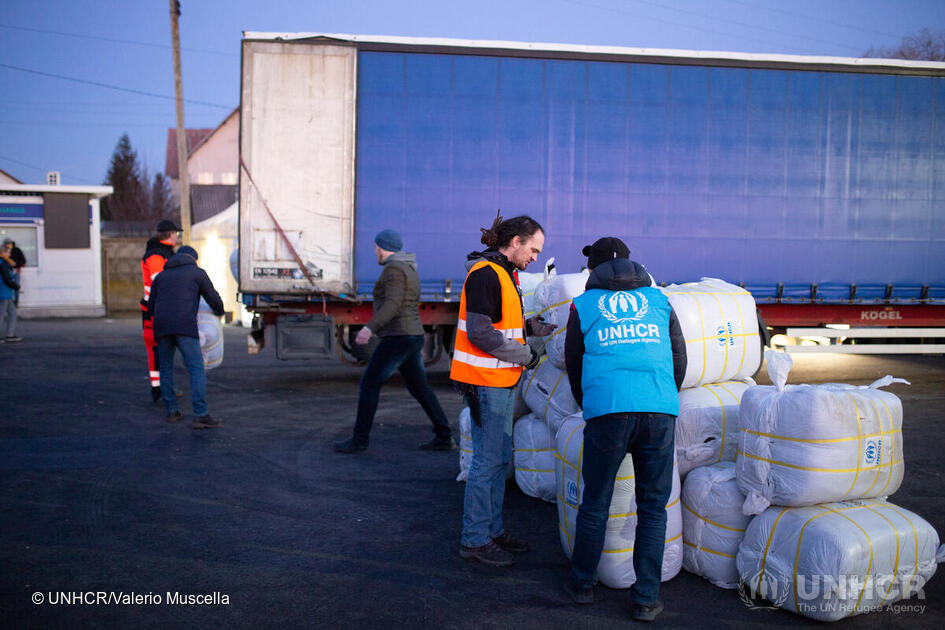
Through 241 humanitarian convoys, UNHCR together with other UN organizations, has been able to get vital help and emergency aid to more than 140,000 Ukrainians in the most hard-hit areas inside the country. This work remains very challenging due to the security situation.
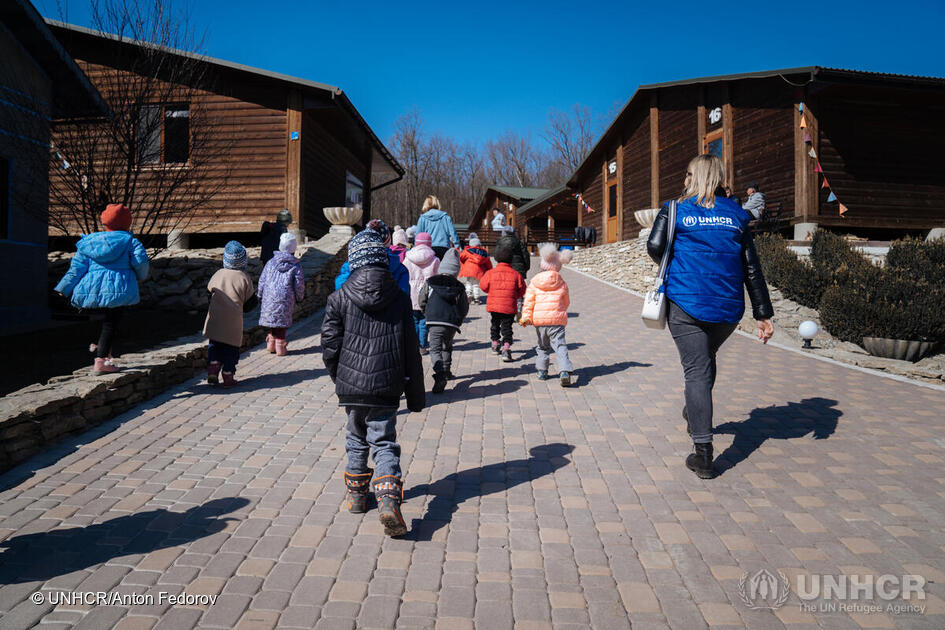
UNHCR is supporting the reception and collective centres in Ukraine, where internally displaced Ukrainians are seeking shelter and support. We have created or improved almost 100,000 sleeping places in more than 300 centres.
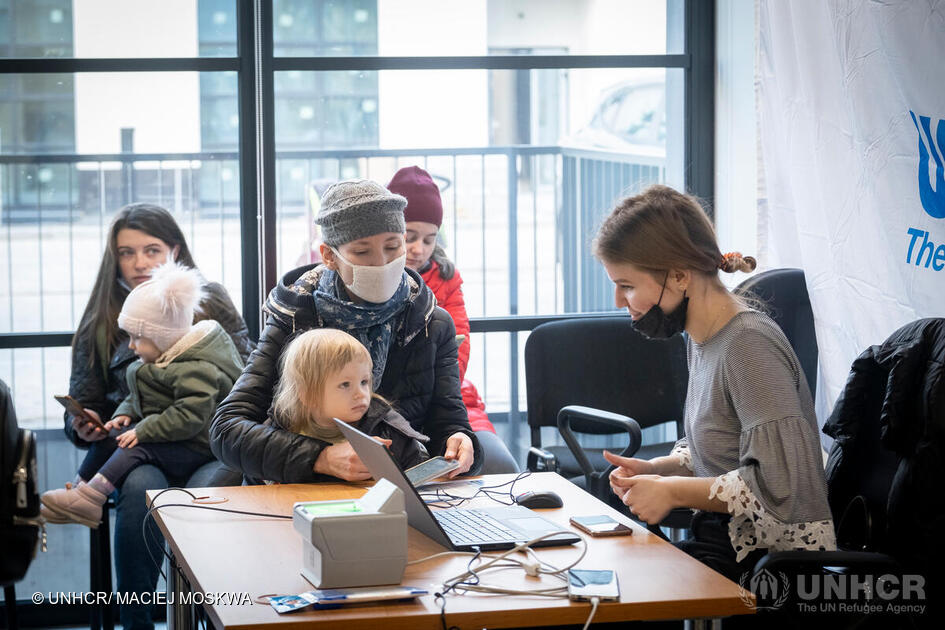
More than 535,000 internally displaced people in Ukraine have received cash assistance from UNHCR. Cash assistance allows the refugees to prioritize and fulfil their needs in a dignified manner and contributes to the local economy. UNHCR has also provided cash assistance to some 397,000 refugees from Ukraine in neighbouring Moldova, Romania, Slovakia, and Poland. Cash assistance then serves as a transitional safety net before people find a job or are included in national social protection schemes.
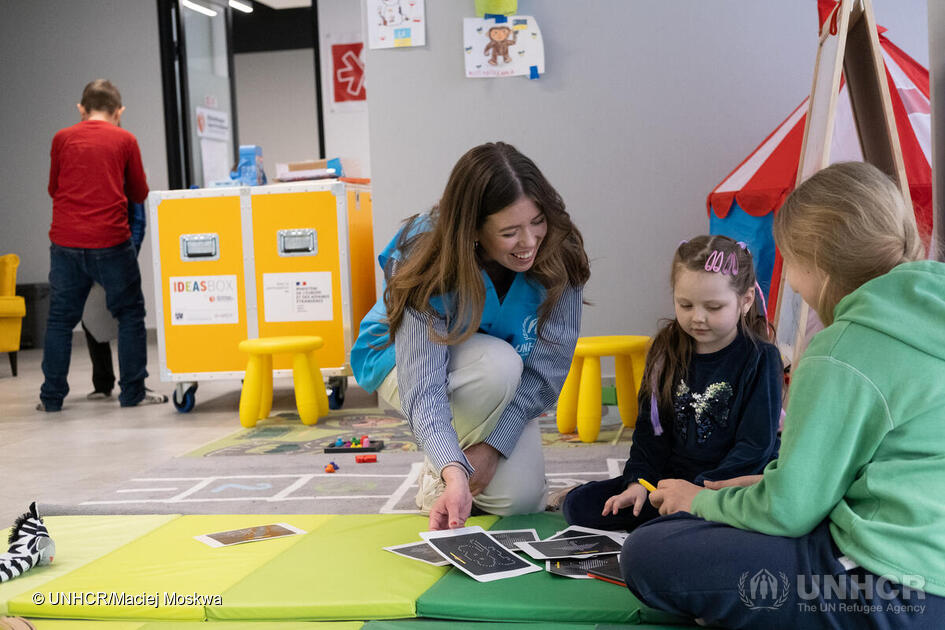
UNHCR together with UNICEF has established 34 Blue Dot Safe Spaces across Moldova, Romania, Hungary, Slovakia, Poland, Bulgaria, and Italy. The Blue Dots provide a safe space for vulnerable refugees such as single mothers, unaccompanied children, and refugees from the LGBTQI+ community. The Blue Dot hubs offer specialized services, including information, advice, child-friendly spaces, family reunification services, counselling, psychosocial support, safe areas to sleep, emergency items and referral to specialized services.
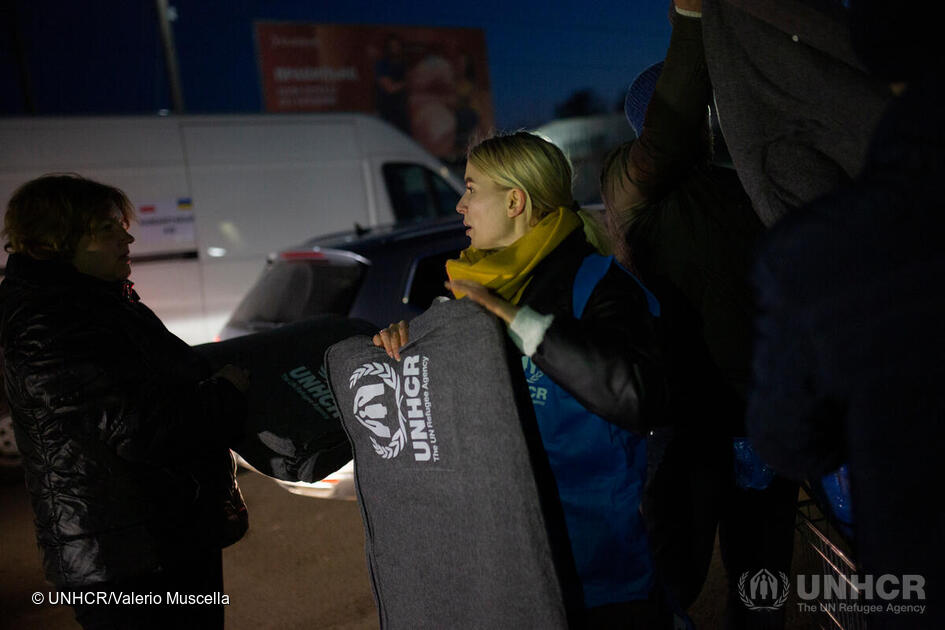
Inside Ukraine, UNHCR has reached almost 1.8 million people with assistance as of end August. This includes delivering more than 723,000 food and non-food items, such as blankets, kitchen sets, mattresses, jerry cans, and solar lamps, to internally displaced people in many locations in Ukraine.
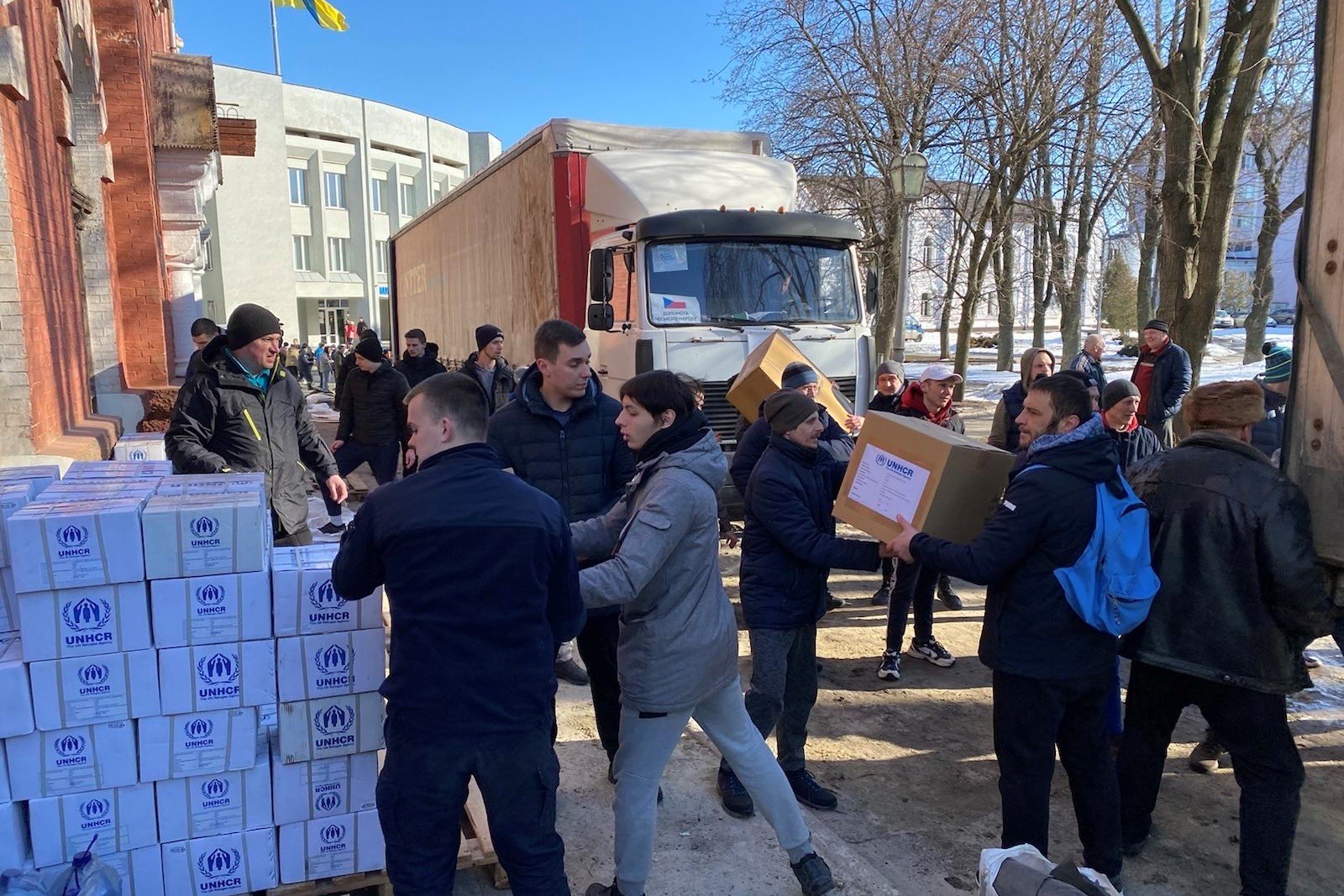
The shelling has damaged many houses in the hard-hit areas of Ukraine, and UNHCR is helping people with materials to repair roofs, windows, doors, and walls. In Donetsk and Luhansk oblast, and in areas around Kyiv, UNHCR has also provided thousands of households with emergency shelter kits.
Early on, UNHCR launched a “Stay Safe” awareness-raising campaign in Ukrainian, English and Russian to inform Ukrainian refugees of risks and offer guidance on how to keep safe. Additionally, UNHCR has deployed specialist staff in Hungary, Moldova, Poland, and Romania and is training volunteers on protection against exploitation and abuse, trafficking, and gender-based violence.
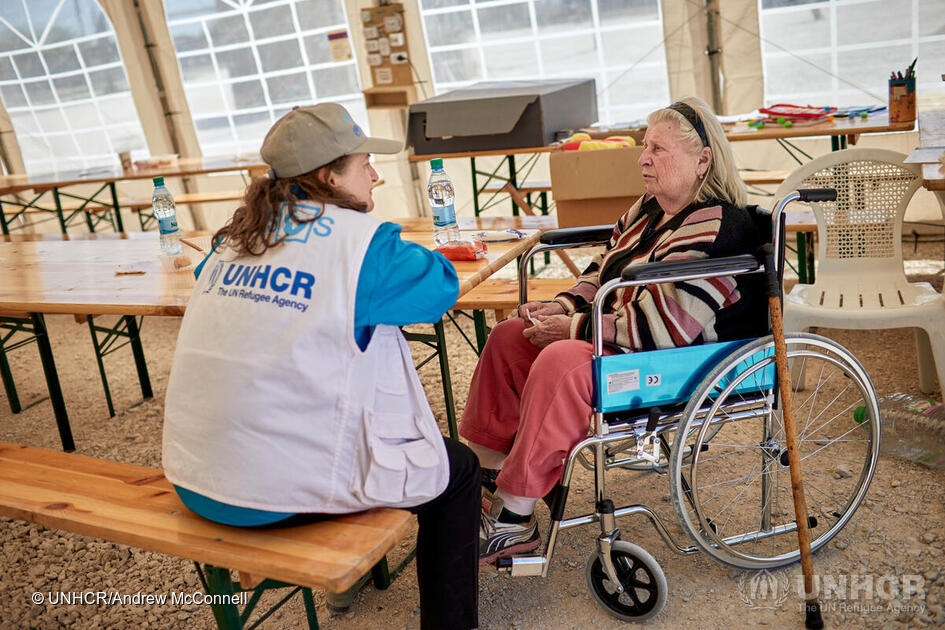
Information, legal advice, and referrals to the correct services are essential in times of plight. UNHCR has provided hundreds of thousands of fleeing Ukrainians with information and protection services, including psychosocial support. We do that via our presence at border crossing points, transit, and reception centres, as well as via hotlines or our digital HELP pages.
Denmark as a donor
Thus far in 2022, Denmark has contributed over USD 101.6 million to UNHCR, of which USD 8.7 million went towards UNHCR’s response to the Ukraine situation. USD 35.6 million was unearmarked. In 2021, Denmark was our eight biggest donor, with a contribution of USD 101.2 million, of which 34 % was unearmarked.
Finland as a donor
Thus far in 2022, Finland has contributed over USD 23 million to UNHCR, of which approx. USD 5.9 million went towards UNHCR’s response to the Ukraine situation. USD 8.2 million was unearmarked. In 2021, Finland contributed with over USD 26.5 million, of which 31 % was unearmarked.
Iceland as a donor
Thus far in 2022, Iceland has contributed over USD 3.1 million to UNHCR, of which USD 788,563 went towards UNHCR’s response to the Ukraine situation. USD 772,499 was unearmarked. In 2021, Iceland contributed with over USD 1.8 million, of which 26 % was unearmarked.
Norway as a donor
Thus far in 2022, Norway has contributed over USD 108.3 million to UNHCR, of which approx. USD 17.9 million went towards UNHCR’s response to the Ukraine situation. USD 72.5 million was unearmarked. In 2021, Norway was our sixth biggest donor, with a contribution of USD 107.4 million, of which 74 % was unearmarked.
Sweden as a donor
Thus far in 2022, Sweden has contributed over USD 143.6 million to UNHCR, of which approx. USD 7 million went towards UNHCR’s response to the Ukraine situation. USD 99.2 million was unearmarked. In 2021, Sweden was our fifth biggest donor, with a contribution of USD 122.9 million, of which 75.4 % was unearmarked.
Latvia as a donor
Thus far in 2022, Latvia has contributed a total of USD 131,435 to UNHCR for the response to the Ukraine situation. In 2021, Latvia contributed USD 11,933.
Lithuania as a donor
Thus far in 2022, Lithuania has contributed USD 225,225 to UNHCR. USD 112,613 million was unearmarked funding which could be used for sudden emergencies. In 2021, Lithuania contributed USD 58,617.
Estonia as a donor
Thus far in 2022, Estonia has contributed USD 593,673 to UNHCR, of which USD 194,506 went towards UNHCR’s response to the Ukraine situation. USD 119,474 was unearmarked. In 2021, Estonia contributed over USD 696,985, of which 17 % was unearmarked.
Share on Facebook Share on Twitter